Lecture 5: Business Strategy and Monopoly Theory
第五讲商业战略与垄断理论
第5讲课程视频
![图片[1]_Lecture 5: Business Strategy and Monopoly Theory 第五讲商业战略与垄断理论_繁木网](http://fanmu.com/wp-content/uploads/2021/12/Y-Combinator.jpg)
讨论地址:http://www.huomen.com/topic-show-id-103.html
Sam: Alright, good afternoon, today’s speaker is Peter Thiel, Peter was the founder of PayPal, Palantir, and Founders Fund and has invested in most of the tech companies in Silicon Valley. He’s going to talk about strategy and competition. Thank you for coming, Peter.
山姆:好的,下午好,今天的演讲者是彼得·泰尔,彼得是贝宝、帕兰蒂尔和创始人基金的创始人,他投资了硅谷的大多数科技公司。他将谈论战略和竞争。谢谢你来,彼得。
Peter: Awesome, thanks Sam for inviting me, thanks for having me.
彼得:太棒了,谢谢山姆邀请我,谢谢你邀请我。
I sort of have a single idée fixe that I’m completely obsessed with on the business side which is that if you’re starting a company, if you’re the founder, entrepreneur, starting a company you always want to aim for monopoly and you want to always avoid competition. And so hence competition is for losers, something we’ll be talking about today.
在商业方面,我有一个我完全迷恋的固定的idée,那就是,如果你要创办一家公司,如果你是创始人,企业家,创办一家公司,你总是想以垄断为目标,你总是想避免竞争。因此,竞争是针对失败者的,这是我们今天要讨论的。
I’d like to start by saying something about the basic idea of when you start one of these companies, how do you go about creating value? What makes a business valuable? And I want to suggest there’s basically a very simple formula, that if you have a valuable company two things are true. Number one, that it creates “X” dollars of value for the world. Number two, that you capture “Y” percent of “X.” And the critical thing that I think people always miss in this sort of analysis is that “X” and “Y” are completely independent variables, and so “X” can be very big and “Y” can be very small. “X” can be an intermediate size and if “Y” is reasonably big, you can still have a very big business.
首先,我想谈谈当你创办一家这样的公司时,你是如何创造价值的?什么使一个企业有价值?我想建议有一个非常简单的公式,如果你有一个有价值的公司,有两件事是正确的。第一,它为世界创造了“X”美元的价值。第二,你得到了X的Y%,我认为在这种分析中人们总是忽略的一点是X和Y是完全独立的变量,所以X可以很大,Y可以很小“X”可以是中等规模,如果“Y”相当大,你仍然可以拥有非常大的业务。
So to create a valuable company you have to basically both create something of value and capture some fraction of the value of what you’ve created. And sort of just to illustrate this as a contrast, if you compare the US airline industry with a company like Google on search, if you measure by the size of these industries you could say that airlines are still more important than search, just measured by revenue. [For airline carriers] there’s $195 billion in domestic revenues in 2012; Google had just north of $50 billion. And certainly on some intuitive level if you were given a choice and said, well would you want to get rid of all air travel, or do you want to give up search engines, the intuition would be that air travel is something that’s more important than search. And this is of course just the domestic numbers.
因此,要创建一家有价值的公司,你基本上既要创造一些有价值的东西,又要从你所创造的东西中获取一部分价值。作为对比,如果你把美国航空业和谷歌这样的公司在搜索方面进行比较,如果你以这些行业的规模来衡量,你可以说航空业仍然比搜索更重要,只是以收入来衡量。(对于航空公司而言)2012年国内收入为1950亿美元;谷歌仅为500亿美元。当然,在某种直觉层面上,如果给你一个选择,然后说,你是想摆脱所有的航空旅行,还是想放弃搜索引擎,直觉会认为航空旅行比搜索更重要。当然这只是国内的数字。
If you’d look at this globally, airlines are much much bigger than search, than Google is, but the profit margins are quite a bit less. They were marginally profitable in 2012, I think in the entire hundred year history of the airline industry, the cumulative profits in the US have been approximately zero. The companies make money, they episodically go bankrupt, they get recapitalized, and you sort of cycle and repeat. And this is reflected in the combined market capitalization of the airline industry, which may be something like a quarter of Google’s. So you have search much smaller than air travel but much more valuable. I think this reflects these very different valuations on “X” and “Y.”
如果你从全球范围来看,航空公司比搜索大得多,比谷歌大得多,但利润率却少得多。他们在2012年微利,我认为在整个航空业的百年历史中,美国的累计利润几乎为零。这些公司赚钱,他们偶尔破产,他们得到资本重组,你有点循环和重复。这反映在航空业的总市值上,大概是谷歌的四分之一,所以你的搜索比航空旅行要小得多,但价值要大得多。我认为这反映了“X”和“Y”的估值非常不同
欢迎到火门网讨论:huomen.com
If we look at perfect competition, there’s some pros and cons to the world of perfect competition. On a high level, this is something you always study in Econ I, it’s always easy to model, which is why I think econ professors like talking about perfect competition. It somehow is efficient, especially in a world where things are static, because you have all the consumer surplus that’s captured by everybody, and politically it’s what we’re told is good in our society: you want to have competition and it’s somehow a good thing. Of course there are a lot of negatives, it’s generally not that good if you’re involved in anything that’s hyper competitive, because you often don’t make money. I’ll come back to this a little bit later. So I think on one end of the spectrum you have industries that are perfectly competitive and at the other end of the spectrum you have things that I would say are monopolies, and they’re much more stable longer term businesses, you have more capital, and if you get a creative monopoly for inventing something new, I think it’s symptomatic of having created something really valuable.
如果我们看一看完全竞争,完全竞争的世界有其利弊。从高层次上讲,这是你在经济学I中经常学习的东西,建模总是很容易的,这就是为什么我认为经济学教授喜欢谈论完美竞争。它在某种程度上是有效率的,特别是在一个事物静止的世界里,因为你拥有所有被每个人捕获的消费者剩余,而在政治上,我们被告知在我们的社会中是好的:你想要竞争,这在某种程度上是一件好事。当然也有很多负面因素,如果你参与了任何竞争激烈的事情,通常都不太好,因为你通常不赚钱。我稍后再谈这个。所以我认为,在这一领域的一端,你有完全竞争的行业,在这一领域的另一端,你有我认为是垄断的东西,它们是更稳定的长期业务,你有更多的资本,如果你因为发明新东西而获得创造性的垄断,我认为这是创造了一些真正有价值的东西的征兆。
I do think the extreme binary view of the world I always articulate is that there are exactly two kinds of businesses in this world, there are businesses that are perfectly competitive and there are businesses that are monopolies. There is shockingly little that is in between. And this dichotomy is not understood very well because people are constantly lying about the nature of the businesses they are in. And in my mind this is not necessarily the most important thing in business, but I think it’s the most important business idea that people don’t understand, that there are just these two kinds of businesses.
我确实认为,我一直在阐述的极端的二元世界观是,这个世界上有两种企业,有完全竞争的企业,也有垄断的企业。两者之间的差距少得惊人。这种二分法并没有得到很好的理解,因为人们总是在他们所从事的业务的性质上撒谎。在我看来,这不一定是商业中最重要的事情,但我认为这是人们不理解的最重要的商业理念,只有这两种商业。
So let me tell you a little bit about the lies people tell. If you imagine that there was a spectrum of companies from perfect competition to monopoly, the apparent differences are quite small because the people who have monopolies pretend not to. They will basically say, and it’s because you don’t want to get regulated by the government, you don’t want the government to come after you, so you will never say that you have a monopoly. So anyone who has a monopoly will pretend that they are in incredible competition; and on the other end of the spectrum if you are incredibly competitive, and if you’re in some sort of business where you will never make any money, you’ll be tempted to tell a lie that goes in the other direction, where you will say that you’re doing something unique that is somehow less competitive than it looks because you’ll want to differentiate, you will want to try and attract capital, or something like that. So if the monopolists pretend not to have monopolies, the non-monopolies pretend to have monopolies, the apparent difference is very small whereas the real difference I would submit is actually quite big. So there’s this business distortion that happens because of the lies people tell about their businesses and the lies are sort of in these opposite directions.
所以让我告诉你一点人们说的谎话。如果你想象一下,有一系列的公司从完全竞争到垄断,明显的差别是相当小的,因为拥有垄断的人假装没有。他们基本上会说,这是因为你不想受到政府的监管,你不想政府来追你,所以你永远不会说你有垄断。因此,任何拥有垄断地位的人都会假装自己处于难以置信的竞争中;而另一方面,如果你的竞争非常激烈,如果你从事的是一种永远赚不到钱的行业,你就会被诱惑说一个相反方向的谎话,你会说你正在做一件独特的事情,但由于你想与众不同,你会说你正在做的事情没有看上去那么有竞争力,你会想尝试吸引资本,或者诸如此类的事情。所以如果垄断者假装没有垄断者,非垄断者假装有垄断者,表面上的差别是非常小的,而我要提交的真正的差别实际上是相当大的。所以这种商业扭曲的发生,是因为人们对他们的生意撒了谎,而且这些谎话是朝着相反的方向撒的。
Let me drill a little bit down further on the way these lies work. And so the basic lie you tell as a non-monopoly is that we’re in a very small market. The basic lie you tell as a monopoly is the market you’re in is much bigger than it looks. So typically if you want to think of this in set theoretic terms, you could say that a monopoly tells a lie where you describe your business as the union of these vastly different markets and the non-monopolist describes it as the intersection. So in effect, if you’re a non-monopolist you will rhetorically describe your market as super small, you’re the only person in that market. If you have a monopoly you’ll describe it as super big and there’s lots of competition in it.
让我再深入一点,看看这些谎言是怎么起作用的。作为一个非垄断企业,你所说的基本谎言是,我们的市场非常小。作为一个垄断企业,你所说的基本谎言是,你所处的市场比看上去要大得多。所以通常如果你想用集合论的术语来思考这个问题,你可以说一个垄断会说谎,你把你的企业描述为这些截然不同的市场的结合,而非垄断者把它描述为交叉点。所以实际上,如果你是一个非垄断者,你会用修辞来形容你的市场是超小的,你是这个市场上唯一的人。如果你有一个垄断,你会说它是超级大,有很多竞争。
Some examples of how this works in practice. I always use restaurants as the example of a terrible business, this is always sort of the idea that capital [accumulation] and competition are antonyms. If someone accumulates capital, a world of perfect competition is a world where all the capital gets competed away. So you’re opening a restaurant business, no one wants to invest because you just lose money, so you have to tell some idiosyncratic narrative and you’ll say something like. “Well we’re the only British food restaurant in Palo Alto.” So its British, Palo Alto and of course that’s too small a market because people may be able to drive all the way to Mountain View or even Menlo Park and there probably are no people who eat nothing but British food, at least no people who are still alive.
这在实践中是如何工作的一些例子。我总是以餐馆为例来说明一个糟糕的生意,这种想法总是认为资本[积累]和竞争是反义词。如果有人积累了资本,那么一个完全竞争的世界就是一个所有资本都被竞争掉的世界。所以你要开一家餐馆,没有人愿意投资,因为你只是赔钱,所以你必须讲一些独特的故事,你会说这样的话。”好吧,我们是帕洛阿尔托唯一的英式餐厅,“所以它是英式的,帕洛阿尔托,当然,这是一个太小的市场,因为人们可以开车一路到山景城,甚至门罗公园,可能没有人吃什么除了英式食物,至少没有人还活着。
So that’s sort of a fictitiously narrow market. There is sort of a Hollywood version of all of this, the way movies always get pitched, where it’s like a college football star, you know, joins an elite group of hackers to catch the shark that killed his friend. Now that’s a movie that has not yet been made, but the question is, “Is that the right category or is the correct category, it’s just another movie?” In which case there are lots of those, it’s super competitive, it’s incredibly hard to make money, no one ever makes money in Hollywood making movies, it’s really really hard.
所以这是一个虚构的狭窄市场。这一切有点像好莱坞版的电影,电影总是被投球的方式,就像一个大学橄榄球明星,你知道,加入一个精英黑客组织去抓杀死他朋友的鲨鱼。现在这是一部尚未制作的电影,但问题是,“这是正确的类别还是正确的类别,这只是另一部电影?”在这种情况下,有很多这样的,它的超级竞争,这是难以置信的难以赚钱,从来没有人在好莱坞赚钱的电影,这真的很难。
欢迎到火门网讨论:huomen.com
So you always have this question about is the intersection real? Does it make sense? Does it have value? And of course there are startup versions of this, and in the really bad versions you just take a whole series of the buzzwords: sharing, mobile, social apps, you combine them and give some kind of narrative and whether or not that’s a real business or not, it is generally a bad sign. It’s almost this pattern recognition when you have this rhetoric of these sort of intersections, it generally does not work. The something of somewhere is really mostly just the nothing of nowhere, it’s like the Stanford of North Dakota, one of a kind, but it’s not Stanford.
所以你总是有这样一个问题,十字路口是真的吗?有道理吗?它有价值吗?当然也有创业版,在真正糟糕的版本中,你只需要一系列的流行语:分享、移动、社交应用,你把它们结合起来,给出某种叙述,不管这是否是一个真正的业务,这通常是一个坏迹象。这几乎是一种模式识别,当你有这种修辞的交叉点,它通常不起作用。某个地方的某物实际上大部分是无处的无物,就像北达科他州的斯坦福,一种,但它不是斯坦福。
Let’s look at the opposite, the opposite lie, is if you are let’s say the search company that’s down the street from here and has about a happy sixty-six percent market share and is completely dominant in the search market. Google almost never describes itself as a search engine these days and instead it describes itself in all these different ways. So it sometimes says it’s an advertising company. So if it was search you would say, well it’s like it has this huge market share that’s really crazy, so it’s like an incredible monopoly, it’s a much bigger and much more robust monopoly than Microsoft ever had in the nineties, maybe that’s why it’s making so much money. But if you say it’s an advertising market, you could say well, search advertising is seventeen billion and that’s part of online advertising, which is much bigger and then, you know, all US advertising is bigger, and then by the time you get to global advertising, that’s close to five hundred billion and so you’re talking about three and a half percent, so a tiny part of this much larger market.
让我们看看相反的情况,相反的谎言,如果你是的话,比如说搜索公司,就在这条街上,拥有大约百分之六十六的市场份额,在搜索市场上完全占据主导地位。如今,谷歌几乎从不把自己描述成一个搜索引擎,而是用各种不同的方式来描述自己。所以它有时会说是一家广告公司。所以如果是搜索,你会说,它的巨大市场份额真的很疯狂,所以它就像一个难以置信的垄断,它是一个比微软在90年代更大,更强大的垄断,也许这就是为什么它赚这么多钱。但如果你说这是一个广告市场,你可以这么说,搜索广告是170亿,这是在线广告的一部分,在线广告要大得多,然后,你知道,美国所有的广告都大了,到了全球广告的时候,这接近5000亿美元,所以你说的是百分之三点五,所以是这个更大市场的一小部分。
欢迎到火门网讨论:huomen.com
Or if you don’t want to be an advertising company, you could always say you’re a technology company. The technology market is something like a one trillion dollar market and the narrative that you tell about Google and the technology market is, well we’re competing with all the car companies with our self-driving cars, we’re competing with Apple on TVs and iPhones, we’re competing with Facebook, we’re competing with Microsoft on office products, we’re competing with Amazon on cloud services and so we’re in this giant technology market, where there’s competition in every direction you look and no we’re not the monopoly the government’s looking for and we should not get regulated in any way whatsoever. So I think one has to always be super aware that there are these very powerful incentives to distort the nature of these markets, one way or the other.
如果你不想成为一家广告公司,你可以说你是一家科技公司。科技市场就像一个万亿美元的市场,你对谷歌和科技市场的描述是,好吧,我们在与所有拥有自动驾驶汽车的汽车公司竞争,我们在电视和iPhone上与苹果竞争,我们在与Facebook竞争,我们在办公产品上与微软竞争,在云服务上与亚马逊竞争,所以我们在这个巨大的技术市场上,在你所看到的各个方面都有竞争,不,我们不是政府所寻求的垄断,我们不应该受到任何形式的监管。因此,我认为人们必须时刻清醒地认识到,无论怎样,都有这些非常强大的动机来扭曲这些市场的性质。
The evidence of narrow markets in the tech industry is if you basically just, if you look at sort of the big tech companies, Apple, Google, Microsoft, Amazon, they have just been building up cash for year after year and you have these incredibly high profit margins, and I would say that the that one of the reasons the tech industry in the US has been so successful financially is because it’s prone to creating all these monopoly-like businesses and it’s reflected by the fact that these companies just accumulate so much cash they don’t even know what to do with it beyond a certain point.
科技行业市场狭窄的证据是,如果你基本上只是,如果你看看一些大型科技公司,苹果,谷歌,微软,亚马逊,他们只是年复一年地积累现金,你有这些难以置信的高利润率,我想说的是,美国科技行业之所以在财务上如此成功,其中一个原因是它很容易创造出所有这些类似垄断的业务,这反映在这样一个事实上:这些公司只是积累了太多的现金,他们甚至不知道在某一点之后该怎么处理。
Let me say a few things about how to build a monopoly, and I think one of the sort of very counterintuitive ideas that comes out of this monopoly thread is that you want to go after small markets. If you’re a startup, you want to get to monopoly. You’re starting a new company, you want to get to monopoly. Monopolies have a large share of the market, how do you get to a large share of the market? You start with a really small market and you take over the whole market and then over time you find ways to expand that market in concentric circles.
让我说几句关于如何建立一个垄断的话,我认为从这个垄断的思路中产生的一种非常违反直觉的想法是,你想去追逐小市场。如果你是一家初创公司,你想进入垄断行业。你要开一家新公司,你想垄断。垄断企业占有很大的市场份额,你是如何获得很大的市场份额的?你从一个非常小的市场开始,你接管了整个市场,然后随着时间的推移,你找到了同心圆扩展市场的方法。
The thing that’s always a big mistake is going after a giant market on day one because that’s typically evidence that you somehow haven’t defined categories correctly, that normally means there is going to be too much competition in one way or another, so I think almost all the successful companies in Silicon Valley had some model of starting with small markets and expanding. If you take Amazon, you start with just a bookstore, we have all the books in the world, it’s a better bookstore than anybody else has in the world when it starts in the 1990s. It’s online, there’s things you can do that you could not do before, and then you gradually expand into all sorts of different forms of e-commerce and other things beyond that.
总是一个大错误的事情是在第一天就去追逐一个巨大的市场,因为这是典型的证据,说明你在某种程度上没有正确地定义类别,这通常意味着在某种程度上会有太多的竞争,所以我认为几乎所有硅谷的成功公司都有一些开始的模式小市场和扩张。如果你以亚马逊为例,你从一家书店开始,我们拥有世界上所有的书,它在20世纪90年代开始的时候比世界上任何一家书店都好。它是在线的,有一些你以前做不到的事情,然后你逐渐扩展到各种不同形式的电子商务和其他东西。
eBay, you start with Pez dispensers, you move on to Beanie Babies, and eventually it’s all these different online auctions for all these sorts of different goods. What’s very counterintuitive about many of these companies is they often start with markets that are so small, that people don’t think they are valuable at all when you get started. The PayPal version of this was we started with power sellers on Ebay, which was about twenty thousand people. When we first saw this happening in December of 1999, January 2000 right after we launched, there was a sense that these were all, it was such a small market, it was terrible, we thought these were terrible customers to have, it’s just people selling junk on the internet, why in the world we want to be going after this market?
易趣,你从Pez自动售货机开始,你转向Beanie Babies,最后是各种不同商品的网上拍卖。对于这些公司来说,有一点很违反直觉,那就是它们往往是从非常小的市场起步的,以至于人们一开始就认为它们根本没有价值。贝宝的版本是我们从Ebay上的超级卖家开始的,大约有两万人。1999年12月,2000年1月,我们刚上市,我们第一次看到这种情况时,有一种感觉,那就是所有这些,这是一个非常小的市场,非常可怕,我们认为这些都是可怕的客户,只是人们在网上卖垃圾,我们为什么要去这个市场?
But there was a way to get a product that was much better for everybody in that market, and we got to something like twenty five, thirty percent market penetration in two or three months, and you’ve got some walk in to brand recognition, and are able to build the business from there. So I always think these very small markets are quite underrated. The Facebook version of this I always give is that if the initial market at Facebook was ten thousand people at Harvard, it went from zero to sixty percent market share in ten days, that was a very auspicious start. The way this gets analyzed in business schools is always, that’s so ridiculous, it’s such a small market, it can’t have any value at all. So I think the business school analysis of Facebook early on, or of Paypal early on, or of Ebay early on, is that the markets were perhaps so small as to have almost no value and that they would’ve had little value had they they stayed small, but it turned out there were ways to grow them concentrically and that’s what made them so valuable.
但是有一种方法可以得到一种对市场上每个人都好得多的产品,我们在两三个月内达到了25%到30%的市场渗透率,你已经获得了一些品牌认可,并且能够从中建立业务。所以我一直认为这些非常小的市场被低估了。我经常给出的Facebook版本是,如果Facebook最初的市场是哈佛的一万人,那么在十天内,它的市场份额从零上升到百分之六十,这是一个非常好的开始。在商学院里分析这个问题的方式总是,太荒谬了,这个市场太小了,根本没有任何价值。因此,我认为商学院早期对Facebook、Paypal或Ebay的分析是,这些市场可能太小,几乎没有价值,如果它们保持规模较小,它们就没有什么价值,但事实证明,有办法集中发展,这就是它们如此有价值的原因。
Now I think the opposite version of this is always where you have super big markets and there is so many different things that went wrong with all the clean tech companies in the last decade. But the one theme than ran through almost all of them is that they all started with massive markets. Every clean tech powerpoint presentation that one saw in the years 2005 to 2008, which is the clean tech bubble in Silicon Valley, started with where the energy market, where the market was measured in hundreds and billions of trillions of dollars. And then once you’re sort of like a minnow in a vast ocean, that is not a good place to be. That means you have tons of competitors and you don’t even know who all the competitors are.
现在我认为,相反的情况是,你总是有超级大的市场,在过去的十年里,所有的清洁技术公司都出了很多问题。但有一个主题贯穿了几乎所有这些公司,那就是它们都是从庞大的市场开始的。从2005年到2008年,人们所看到的每一个清洁技术powerpoint演示文稿,也就是硅谷的清洁技术泡沫,都是从能源市场开始的,能源市场的规模是几千亿美元。一旦你有点像茫茫大海中的一条小鱼,那就不是一个好地方。这意味着你有很多竞争者,你甚至不知道所有的竞争者都是谁。
You want to be a one of a kind company. You want to be the only player in a small ecosystem. You don’t want to be the fourth online pet food company. You don’t want to be the tenth solar panel company. You don’t want to be the hundredth restaurant in Palo Alto. Your restaurant industry is a trillion dollar industry. So if you do a market size analysis, you conclude restaurants are fantastic business to go into. And often large existing markets typically means that you have tons of competitions so it’s very very hard to differentiate. The first very counterintuitive idea is to go after small markets, markets that are so small people often don’t even think that they make sense. That’s where you get a foothold and then if those markets are able expand, you can scale into a big monopoly business.
你想成为一家独一无二的公司。你想成为小生态系统中唯一的玩家。你不想成为第四家在线宠物食品公司。你不想成为第十家太阳能电池板公司。你不想成为帕洛阿尔托的第一百家餐厅。你的餐饮业是一个万亿美元的产业。因此,如果你做了一个市场规模分析,你会得出结论,餐馆是一个非常好的生意。通常,大的现有市场意味着你有大量的竞争对手,所以很难区分。第一个非常违反直觉的想法是去追求小市场,市场是如此小的人往往甚至不认为他们有意义。这就是你立足的地方,如果这些市场能够扩张,你就可以发展成一个大的垄断企业。
There are several different characteristics of these monopoly businesses that I’d like to focus on. There is no single formula. In technology there is always a sense that in the history of technology, every moment happens only once. The next Mark Zuckerberg won’t build a social network and the next Larry Page won’t be building a search engine, and the next Bill Gates won’t be building an operating system. If you are copying these people, you are not learning from them.
这些垄断企业有几个不同的特点,我想重点谈谈。没有单一的公式。在科技史上,总有一种感觉,那就是在科技史上,每时每刻只发生一次。下一个马克·扎克伯格不会建立社交网络,下一个拉里·佩奇不会建立搜索引擎,下一个比尔·盖茨也不会建立操作系统。如果你在模仿这些人,你就不是在向他们学习。
There are always very unique businesses that are doing something that has not been done before and end up having the potential to be a monopoly. The opening line in Anna Karenina, that all happy families are alike and all unhappy families are unhappy in their own special way, is not true in business, where I think all happy companies are different because they’re doing something very unique. All unhappy companies are alike because they failed to escape the essential sameness in competition.
总有一些非常独特的企业在做一些以前没有做过的事情,最终有可能成为垄断企业。安娜·卡列尼娜的开场白,所有幸福的家庭都是一样的,所有不幸福的家庭都以自己独特的方式不幸福,这在商业上是不正确的,我认为所有幸福的公司都是不同的,因为他们做的事情非常独特。所有不快乐的公司都是一样的,因为它们未能摆脱竞争中的本质相同。
One characteristic of a monopoly technology company is some sort of proprietary technology. My sort of crazy, somewhat arbitrary rule of thumb is you want to have a technology that’s an order of magnitude better than the next best thing. So Amazon had over ten times as many books, it may not have been that high tech, but you figure oh well it can sell ten times as many books and be more efficient along the way. In the case of PayPal, Bill Turner was using checks to send money on Ebay, it took seven to ten days to clear, and PayPal could do it more than ten times as fast. You want to have some sort of very powerful improvement, some order of magnitude improvement, on some key dimension. Of course, if you just come with something totally new, it’s just like an infinite improvement. I would say the iPhone was the first smart phone that worked, it may not be in fact, but it’s so definitely an order of magnitude of an improvement. So I think the technology needs to be designed to give you a massive delta over the next the next best thing.
垄断技术公司的一个特点是某种专有技术。我有点疯狂,有点武断的经验法则是你想要一个比下一个最好的东西好一个数量级的技术。所以亚马逊有超过十倍的书,它可能没有那么高的技术,但你觉得它可以卖十倍的书,而且一路走起来效率更高。以贝宝为例,比尔·特纳(Bill Turner)在Ebay上用支票汇款,需要7到10天才能结清,贝宝的速度可以提高10倍以上。你需要一些非常强大的改进,一些数量级的改进,在一些关键的方面。当然,如果你只是带来一些全新的东西,那就像是一个无限的进步。我想说iPhone是第一款成功的智能手机,事实上可能不是,但它确实是一个数量级的进步。所以我认为这项技术需要被设计成在下一个最好的东西上给你一个巨大的三角洲。
I think there often are network effects that can kick in and that really help the thing and these are linked to monopolies over time, the thing that is very tricky about network effects is they’re often very hard to get started and so you know everyone understands how valuable they are. There’s always this incredibly tricky question: why is it valuable to the first person who’s doing something. Economies of scale, if you have something with very high fixed costs and very low marginal costs, that’s typically a monopoly-like business.
我认为经常有一些网络效应能起作用,而且确实有帮助,而且随着时间的推移,这些效应与垄断有关,网络效应非常棘手的一点是,它们通常很难启动,所以你知道每个人都知道它们有多大的价值。总是有一个非常棘手的问题:为什么它对第一个做某事的人有价值。规模经济,如果你有固定成本很高,边际成本很低的东西,那就是典型的垄断型企业。
And then there is this thing of branding which is sort of this idea that gets lodged into people’s brains. I never quite understand how branding works, so I never invest in companies where it’s just about branding but it is, I think, a real phenomenon that creates real value. I think one of the things, I’m going to come back to this in a little bit, towards the end, but one of the things that’s very striking is that software businesses are often, are for some reason, very good at some of these things. They are especially good at the economies of scale part because the marginal cost of software is zero. So if you get something that works in software it’s often significantly better than the existing solution and then you have these tremendous economies of scale and you can scale fairly quickly.
还有一种是品牌的概念,这种想法被植入了人们的大脑。我从来都不太了解品牌是如何运作的,所以我从来没有投资过那些只注重品牌的公司,但我认为,这是一种创造真正价值的真实现象。我想其中的一件事,我会回到这一点,接近尾声,但其中一件非常惊人的事情是,软件企业往往,出于某种原因,在这些事情上非常擅长。他们特别擅长规模经济,因为软件的边际成本为零。因此,如果你得到了一些在软件中工作的东西,它通常比现有的解决方案要好得多,然后你就有了这些巨大的规模经济,你可以相当快地进行扩展。
So even if the market starts small, you can grow your business quickly enough to stay at the same size as the growing market and maintain the monopoly of power. Now the critical thing about these monopolies is it’s not enough to have a monopoly for just a moment. The critical thing is have one that lasts over time and so in Silicon Valley there is always this sort of idea that you want to be the first mover and I always think in some ways the better framing is you want to be the last mover. You want to be one of the last companies in that category, those are the ones that are really valid. Microsoft was the last operating system, at least for many decades. Google was the last search engine. Facebook will be valuable if it turns out to be the last of social networking site.
因此,即使市场起步很小,你也可以迅速发展你的业务,使之与不断增长的市场保持同样的规模,并保持对权力的垄断。现在,这些垄断的关键是,仅仅有一个垄断是不够的。关键的是要有一个能持续一段时间的框架,所以在硅谷总是有这样的想法,你想成为先行者,我总是认为在某些方面,更好的框架是你想成为最后的先行者。你想成为这类公司中的最后一家,那些才是真正有效的。微软是最后一个操作系统,至少几十年来是这样。谷歌是最后一个搜索引擎。如果Facebook最终成为社交网站的最后一家,它将是有价值的。
And one way to think of this last mover value is this idea that most of the value in these companies exists far in the future. If you do a discounted cash flow analysis of the business, you’ll look at all these profit streams, you have a growth rate, the growth rate’s much higher that the discount rate and so most of the value exists far in the future. I did this exercise at Pay Pal in March of 2001 we’d been in business for about twenty seven months and the growth rate was a hundred percent a year, we were discounting future cash flows by thirty percent, and it turned out that about three quarters of the value of the business as of 2001 came from cash flows in years 2011 and beyond.
考虑到最后一个推动者的价值的一种方法是认为这些公司的大部分价值存在于遥远的未来。如果你对企业进行贴现现金流分析,你会看到所有这些利润流,你有一个增长率,增长率远远高于贴现率,因此大部分价值存在于遥远的未来。2001年3月,我在Pay Pal做了这个练习,我们已经经营了27个月,每年的增长率是100%,我们将未来的现金流折现了30%,结果发现,截至2001年,大约四分之三的业务价值来自2011年及以后的现金流。
And whenever you do the math on any of these tech companies, you get to an answer that is something like that. So if you are trying to analyze any of the tech companies in Silicon Valley, AirBnB, Twitter, Facebook, any emerging Internet companies, all the ones in Y Combinator, the math tells you that three quarters, eighty-five percent of the value is coming from cash flows in years 2024 and beyond. It’s very far in the future and so one of the things that we always over value in Silicon Valley is growth rates and we undervalue durability.
每当你对这些科技公司进行计算时,你都会得到这样的答案。因此,如果你试图分析硅谷、AirBnB、Twitter、Facebook的任何一家科技公司,任何新兴互联网公司,所有Y Combinator的公司,数学告诉你,四分之三,百分之八十五的价值来自2024年及以后的现金流。它离未来很远,所以我们在硅谷总是高估的一件事就是增长率,而我们低估了耐用性。
Growth is something you can measure in the here and now, you can always track that very precisely. The question of whether a company will be around a decade from now, that’s actually what dominates the value equation and that’s a much more qualitative sort of a thing. And so if we went back to this idea of these characteristics of monopoly, the proprietary technology, network effects, economies of scale, you can think of these characteristics as ones that exist at a moment in time where you capture a market and take it over but you also want to think about, are these things going to last over time. So there’s a time dimension to all these characteristics. So networks in fact often have a great time element where as the network scales, network effects actually get more robust, and so if you have a network business it’s often one that can become a bigger and stronger monopoly over time.
增长是你可以在此时此刻测量的,你可以非常精确地跟踪它。一家公司是否会在十年后出现的问题,实际上这就是主导价值等式的因素,这是一种更为定性的东西。如果我们回到垄断的特征,专有技术,网络效应,规模经济,你可以认为这些特征存在于某个时刻,你占领了一个市场并接管了它,但你也要想一想,这些东西是否会持续一段时间。所有这些特征都有一个时间维度。因此,事实上,网络往往有一个伟大的时间因素,随着网络规模的扩大,网络效应实际上变得更加强大,因此,如果你有一个网络业务,它往往可以成为一个更大,更强的垄断随着时间的推移。
Proprietary technology is always a little bit of a tricky one, so you want something that is an order of magnitude better than the state of the art in the world today. That’s how you get people’s attention, that’s how you initially break through. But then you don’t want to be superseded by somebody else. So there are all these areas of innovation where there was tremendous innovation, but no one made any money. So disk drive manufacturing in the 1980’s, you could build a better disk drive than anybody else, you could take over the whole world and two years later someone else would come along and replace yours. In the course of fifteen years, you got vastly improved disk drives, so had a great benefit to consumers, but it didn’t actually help the people who started these companies.
专有技术总是有点棘手,所以你想要的东西是一个数量级比当今世界上最先进的水平。这就是你如何引起人们的注意,这就是你最初突破的方式。但你不想被别人取代。因此,在所有这些创新领域都有巨大的创新,但没有人赚钱。所以磁盘驱动器制造在80年代,你可以制造一个比其他任何人都好的磁盘驱动器,你可以接管整个世界,两年后,其他人会来取代你的。在15年的时间里,磁盘驱动器得到了极大的改进,因此给消费者带来了巨大的好处,但实际上并没有帮助那些创办这些公司的人。
There’s always this question about having a huge breakthrough in technology, but then also being able to explain why yours will be the last breakthrough or at least the last breakthrough for a long time or if you make a breakthrough, then you can keep improving on it at quick enough pace that no one can ever catch up. So if you have a structure of the future where there’s a lot of innovation and other people will come up with new things and the thing you’re working on, that’s great for society. It’s actually not that good for your business typically. And then economies of scale we’ve already about. I think this last mover thing is very critical. I’m always tempted, I don’t want to overdo chess analogies, but the first mover in chess is someone who plays white, white is about a one-third of a pawn advantage, so there is a small advantage to going first. You want to be the last mover who wins the game, so there’s always world chess champion Capablanca line, “You must begin by studying the end game.” I wouldn’t say that’s the only thing you should study, I think perspective of asking these questions, why will this still be the leading company in ten, fifteen, twenty years from now, is a really critical one to try to think through.
总是有这样一个问题,关于在技术上有一个巨大的突破,但同时也能够解释为什么你的技术将是最后的突破,或者至少是很长一段时间内的最后一个突破,或者如果你取得了突破,那么你可以以足够快的速度不断改进,没有人能赶上。因此,如果你有一个未来的结构,那里有很多创新,其他人会提出新的东西和你正在做的事情,这对社会是很好的。实际上这对你的生意不太好。然后是我们已经讨论过的规模经济。我认为最后一步行动非常关键。我总是很受诱惑,我不想做过多的象棋类比,但国际象棋的先行者是玩白棋的人,白棋约占棋子优势的三分之一,所以先走有小优势。你想成为最后一个赢得比赛的人,所以国际象棋世界冠军卡帕布兰卡总是说,“你必须从研究最后一局开始。”我不会说这是你唯一应该研究的东西,我认为从提出这些问题的角度来看,为什么这家公司在十年、十五年、二十年后仍然是领先的公司,是一个非常关键的问题。
I want to go in two slightly other directions with this the monopoly versus competition idea. I think this is the central idea on my mind for business, for starting a business, for thinking about them. There are some very interesting perspectives, I think it gives, on the whole history of innovation in technology and science. We’ve lived through 300 years of incredible technological progress in many many different domains. Steam engines to railways, the telephone, refrigeration, household appliances, the computer revolution, aviation, all different areas of technological innovation. Then there’s sort of an analogous thing to say about science where we’ve lived through centuries of enormous amounts of innovation in science as well.
我想从两个稍微不同的方向来阐述这个观点,垄断与竞争的观点。我想这是我对商业、创业和思考的中心思想。我认为,在科技创新的整个历史上,有一些非常有趣的观点。我们在许多不同领域经历了300年令人难以置信的技术进步。蒸汽机到铁路、电话、制冷、家电、计算机革命、航空、各个不同领域的技术创新。关于科学也有类似的说法,我们经历了几个世纪的大量科学创新。
The thing that I think people always miss when they think about these things, is that because “X” and “Y” are independent variables, some of these things can be extremely valuable innovations, but the people who invent them, who come up with them, do not get rewarded for this. Certainly if you go back to you need to create X dollars in value and you capture Y percent of X, I would suggest that the history of science has generally been one where Y is zero percent across the board, the scientists never make any money. They’re always deluded into thinking that they live in a just universe that will reward them for their work and for their inventions. This is probably the fundamental delusion that scientists tend to suffer from in our society. Even in technology there are sort of many different areas of technology where there were great innovations that created tremendous value for society, but people did not actually capture much of the value. So I think there is a whole history of science and technology that can be told from the perspective of how much value was actually captured. Certainly there are entire sectors where people didn’t capture anything.
我认为人们在思考这些东西时总是会忽略的一点是,因为“X”和“Y”是自变量,其中一些东西可能是极有价值的创新,但发明它们的人,提出它们的人,并不会因此得到回报。当然,如果你回到过去,你需要创造X美元的价值,你得到X的Y%,我会建议,科学的历史一般是Y是0%,科学家从来没有赚到任何钱。他们总是误以为他们生活在一个公正的宇宙里,这个宇宙会奖励他们的工作和发明。这可能是科学家在我们的社会中容易遭受的基本错觉。即使在科技领域,也有许多不同的科技领域,其中有伟大的创新,为社会创造了巨大的价值,但人们实际上并没有获得太多的价值。所以我认为有一个完整的科学技术史,可以从实际获取了多少价值的角度来判断。当然,有些部门的人什么都没拍到。
You’re the smartest physicist of the twentieth century, you come up with special relativity, you come up with general relativity, you don’t get to be a billionaire, you don’t even get to be a millionaire. It just somehow doesn’t work that way. The railroads were incredibly valuable, they mostly just went bankrupt because there was too much competition. Wright brothers, you fly the first plane, you don’t make any money. So I think there is a structure to these industries that’s very important.
你是二十世纪最聪明的物理学家,你提出狭义相对论,你提出广义相对论,你不可能成为亿万富翁,你甚至不可能成为百万富翁。只是不知道怎么回事。铁路是非常有价值的,它们大多只是因为竞争太激烈而破产。莱特兄弟,你开第一架飞机,你一分钱也赚不到。所以我认为这些行业有一个非常重要的结构。
I think the thing that’s actually rare are the success cases. So if you really think about the history in this and this two hundred fifty years sweep, why is almost always zero percent, it’s always zero in science, it’s almost always in technology. It’s very rare where people made money. You know in the late eighteenth, early nineteenth century, the first industrial revolution was the textile mills, you got the steam engine, you sort of automated things. You had these relentless improvements that people improved efficiency of textile factories, of manufacturing generally, at a clip of five to seven percent every year, year after year, decade after decade. You had sixty, seventy years of tremendous improvement from 1780 to 1850. Even in 1850, most of the wealth in Britain was still held by the landed aristocracy and the workers didn’t make that much. The capitalists didn’t make that much either, it was all competed away. There were hundreds of people running textile factories, it was an industry where the structure of the competition prevented people from making any money.
我认为真正罕见的是成功的案例。如果你真的想一想这250年的历史,为什么几乎总是零,在科学上总是零,在技术上总是零。人们赚钱的地方很少见。你知道在十八世纪末十九世纪初,第一次工业革命是纺织厂,你有蒸汽机,你有一些自动化的东西。你有这些无情的改进,人们提高了纺织厂的效率,制造业的效率,每年,年复一年,年复一年,以百分之五到百分之七的速度。从1780年到1850年,你经历了六十、七十年的巨大进步。即使在1850年,英国的大部分财富仍由地主贵族持有,工人也赚不了那么多钱。资本家也没赚那么多钱,全被竞争掉了。当时有数百人经营纺织厂,这个行业的竞争结构使人们无法赚钱。
There are, in my mind, probably only two broad categories in the entire history of the last two hundred and fifty years where people actually came up with new things and made money doing so. One is these sort of vertically integrated complex monopolies which people did build in the second industrial revolution at the end of the nineteenth and start of the twentieth century. This is like Ford, it was the vertically integrated oil companies like Standard Oil, and what these vertically integrated monopolies typically required was a very complex coordination, you’ve got a lot of pieces to fit together in just the right way, and when you assemble that you had a tremendous advantage. This is actually done surprisingly little today and so I think this is sort of a business form that when people can pull it off, is very valuable.
在我看来,在过去250年的整个历史中,可能只有两大类人真正发明了新东西,并因此而赚钱。一种是人们在十九世纪末二十世纪初的第二次工业革命中建立起来的纵向一体化的复杂垄断。这就像福特,它是垂直整合的石油公司,像标准石油公司,这些垂直整合的垄断公司通常需要非常复杂的协调,你有很多零件以正确的方式装配在一起,当你装配时,你有巨大的优势。这在今天做得出奇的少,所以我认为这是一种商业形式,当人们能够成功的时候,是非常有价值的。
It’s typically fairly capital intensive, we live in a culture where it’s very hard to get people to buy into anything that’s super complicated and takes very long to build. When I think of my colleague and friend Elon from PayPal success with Tesla and SpaceX, I think the key to these companies was the complex vertically integrated monopoly structure they had. If you look at Tesla or SpaceX and you ask, was there sort of a single breakthrough, I mean they certainly innovated on a law of dimensions, but I don’t think there was a single 10X breakthrough on battery storage, they may be working on some things in rocketry, but there was no sort of single massive breakthrough. But what was really impressive was integrating all these pieces together and doing it in a way that was more vertically integrated than most other competitors.
它是典型的资本密集型企业,我们生活在一种文化中,很难让人们购买任何超复杂、耗时很长的东西。当我想起我的同事和朋友埃隆,他来自贝宝成功与特斯拉(Tesla)和SpaceX的合作,我认为这些公司的关键在于它们复杂的纵向一体化垄断结构。如果你看看特斯拉或者SpaceX,你会问,有没有一个突破,我的意思是他们肯定是在尺寸定律上创新了,但我不认为在电池储存方面有一个10倍的突破,他们可能在火箭技术上做了一些事情,但没有一个巨大的突破。但真正让人印象深刻的是,将所有这些部分整合在一起,并以一种比大多数其他竞争对手更为垂直整合的方式进行整合。
So Tesla also integrated the car distributors so they wouldn’t steal all the money as has happened with the rest of the car industry in the US. Or SpaceX, basically, you pulled in all subcontractors where most of the large aerospace companies have single sourced subcontractors that are able to charge monopoly profits and make it very hard for the integrated aerospace companies to make money. And so vertical integration I think is sort of a very under explored modality of technological progress that people would do well to look at more.
因此,特斯拉还整合了汽车经销商,这样他们就不会像美国其他汽车行业那样窃取所有资金。或者SpaceX,基本上,你把所有的分包商都拉进来了,大多数大型航空航天公司都有单一来源的分包商,这些分包商能够收取垄断利润,使得综合航空航天公司很难赚钱。因此,我认为纵向一体化是一种技术进步的模式,人们应该多看一看。
And then I think there is something about software itself that’s very powerful. Software has these incredible economies of scale, these low marginal costs, and there is something about the world of bits, as opposed to the world of atoms, where you can often get very fast adoption and fast adoption is critical to capturing and taking over markets because even if you have a small market, if adoption rate is too slow, there will be enough time for other people to enter that market and compete with you. Whereas if you have a small to midsize market, have the fast adoption rate, you can now take over this market. So I think this is one of the reasons Silicon Valley has done so well and why software has been this phenomenal industry.
然后我认为软件本身有一些非常强大的功能。软件有着难以置信的规模经济,低的边际成本,比特的世界与原子的世界不同,在原子的世界里,你通常可以得到非常快的采用,而快速的采用对于占领和占领市场是至关重要的,因为即使你有一个很小的市场,如果采用率太慢,也会有有足够的时间让其他人进入这个市场和你竞争。然而,如果你有一个中小型市场,有快速的采用率,你现在可以接管这个市场。所以我认为这是硅谷做得这么好的原因之一,也是为什么软件一直是这个惊人的行业。
What I would suggest that we will leave you with is there are these different rationalizations people give for why certain things work and why certain things don’t work, and I think these rationalizations always obscure this question on creating “X” dollars in value and capturing “Y” percent of “X.” So, the science rationalization we’re always told is that the scientists aren’t interested in making money. They’re doing it for charitable reasons and that you’re not a good scientist if you’re motivated by money. I’m not even saying people should always be motivated by money or something like this, but I think we should wish to be a little bit more critical of this as a rationalization. We should ask is this a rationalization to obscure the fact that “Y” equals zero percent and the scientists are operating in this sort of world where all the innovation is effectively competed away and they can’t capture any of it directly.
我建议留给你们的是,人们对为什么某些事情有效和为什么某些事情无效给出了不同的合理化解释,我认为这些合理化解释总是掩盖了创造“X”美元价值和获取“X”的“Y”百分比的问题,我们常被告知的科学合理化是科学家对赚钱不感兴趣。他们这样做是出于慈善的原因,如果你的动机是金钱,你就不是一个好科学家。我并不是说人们应该总是被金钱或类似的东西所激励,但我认为我们应该对这一点更加批判,将其作为一种合理化。我们应该问,这是不是一个合理化的解释,以掩盖“Y”等于0%的事实,科学家们在这样一个世界里运作,所有的创新都在有效地竞争,他们不能直接捕获任何创新。
The software distortion that often happens is because people are making such vast fortunes in software, we infer that this is the most valuable thing in the world being done full stop. And so people at Twitter make billions of dollars, it must be that Twitter is worth far more than anything Einstein did. What that realization tends to obscure, is again that “X” and “Y” are independent variables and that there are these businesses where you capture a lot of X and others where you don’t. So I do think the history of innovation has been this history where the microeconomics, the structure of these industries has mattered a tremendous amount and there is sort of this story where some people made vast fortunes because they worked in industries with the right structure and other people made nothing at all because they were in these very competitive things.
经常发生的软件失真是因为人们在软件上赚了这么多钱,我们推断这是世界上最有价值的事情正在做的句号。推特上的人赚了数十亿美元,推特的价值肯定远远超过爱因斯坦所做的一切。这种认识往往是模糊的,再次是“X”和“Y”是独立变量,有些企业你捕捉到了很多X,有些企业你没有。所以我确实认为创新的历史就是这样的历史,微观经济,这些行业的结构,影响了巨大的数量在这种情况下,有些人因为在结构合理的行业工作而发了大财,而另一些人则因为从事竞争激烈的行业而一无所获。
We shouldn’t just rationalize that way. I think it’s worth understanding this better. Then finally, let me come back to this sort of overarching theme for this talk, this competition is for losers idea, which is always a provocative way to title things because we always think of the losers as the people who are not good at competing. We think of losers as the people who are slow on the track team in high school or do a little less well on standardized tests, and don’t get into the right schools. So we always think of losers as people who can’t compete and I want us to really rethink and re-value this and consider whether it’s possible the competition itself is off.
我们不应该这样做。我认为应该更好地理解这一点。最后,让我回到这个演讲的主题,这个竞争是为了失败者的想法,这总是一个挑衅性的标题,因为我们总是认为失败者是不善于竞争的人。我们认为失败者是指那些在高中田径队成绩慢或者标准化考试成绩差一点,进不了合适学校的人。所以我们总是认为失败者是无法竞争的人,我希望我们真正重新思考和重新评价这一点,并考虑是否有可能竞争本身已经结束。
It’s not just the case we don’t understand this monopoly-competition dichotomy intellectually. So we’ve been talking about why you wouldn’t understand it intellectually, because people lie about it, it’s distorted, the history of innovation rationalizes it in all these very strange ways. I think it’s more than just an intellectual blind spot, but also a psychological blind spot, where we find ourselves very attracted to competition and in one form or another we find it reassuring if other people do things. The word ape, already in the time of Shakespeare, meant both primate and imitate and that is something about human nature, it’s deeply imitative, ape like, sheep like and this is very problematic thing that we need to always think through and try to overcome.
不仅仅是这种情况,我们在智力上不理解这种垄断竞争的二分法。所以我们一直在讨论为什么你不能理智地理解它,因为人们对它撒谎,它被扭曲了,创新的历史以所有这些非常奇怪的方式使它合理化。我认为这不仅仅是一个智力盲点,更是一个心理盲点,我们发现自己非常被竞争所吸引,在某种形式上,如果别人做事,我们会觉得很安心。“猿”这个词,在莎士比亚时代就已经有了,意思是灵长类动物和模仿,这是关于人性的东西,它有很深的模仿性,类人猿,绵羊,这是一个非常有问题的东西,我们需要一直思考并努力克服。
There is always this question about competition as a form of validation, where we go for things that lots of other people are going for. It’s not that there is wisdom of crowds, it’s not that lots of people trying to do something is the best proof of that being valuable. I think it’s when lots of people are trying to do something, that is often proof of insanity. There are twenty thousand people a year who move to Los Angeles to become movie stars, about twenty of them make it. I think the Olympics are a little bit better because you have, you can sort of figure out pretty quickly whether you’re good or not, so there’s little less of a deadweight loss to society. You know the sort of educational experience that at a place, the pre-Stanford educational experience, there is always sort of a non-competitive characterization. I think most of the people in this room had machine guns and they were competing with people with bows and arrows, so it wasn’t exactly a parallel competition when you were in junior high school, in high school. There is always the question: does the tournament make sense as you keep going?
总是有这样一个问题,关于竞争作为一种确认的形式,我们在哪里去做很多其他人都想做的事情。这并不是说有很多人的智慧,也不是说很多人试图去做某件事是有价值的最好证明。我认为当很多人试图做某事的时候,这往往是精神错乱的证明。每年有两万人搬到洛杉矶当电影明星,其中大约有二十人成功了。我认为奥运会更好一点,因为你有,你可以很快判断出你是好是坏,所以对社会的无谓损失就少了一点。你知道那种教育经历,在斯坦福大学之前的教育经历中,总有一种非竞争性的特征。我想这个房间里的大多数人都有机关枪,他们和拿弓箭的人竞争,所以在你上初中、高中的时候,这不完全是一个平行的竞争。总有一个问题:在你继续前进的过程中,锦标赛有意义吗?
There is always this question if people going on to grad school or post doctoral educations, does the intensity of the competition really make sense. There is the classic Henry Kissinger line describing his fellow faculty at Harvard, “The battles were so ferocious because the stakes were so small,” describing academia and you sort of think on one level this is a description of insanity. Why would people fight like crazy when the stakes are so small, but it’s also, I think, simply a function of the logic of a situation. When it’s been really hard to differentiate yourself from other people, when the differences are, when the objectives differences really are small, you have to compete ferociously to maintain a difference of one sort or another. That’s often more imaginary than real. There is always sort of a personal version of this I tell, where I was sort of hypertracked. In my eighth grade junior high school yearbook one my friends wrote, I know you’re going to get into Stanford. Four years later, I went to Stanford Law School, ended up at a big law firm in New York where from the outside everybody wanted to get in and on the inside everybody wanted to leave and it was this very strange dynamic where I realized, this was maybe not the best idea, and I left after seven months and three days.
如果人们继续读研究生或博士后,竞争的激烈程度真的有意义吗。亨利基辛格(Henry Kissinger)有一句经典的台词描述了他在哈佛的同事们,“战斗如此激烈,因为赌注如此之小”,描述学术界,你在某种程度上认为这是对疯狂的描述。为什么人们会在赌注如此之小的情况下疯狂地战斗,但我认为,这也只是一种情况逻辑的作用。当你真的很难把自己和别人区别开来,当差异很大,当目标差异真的很小的时候,你必须激烈地竞争来保持这样或那样的差异。那往往是虚构的而不是真实的。总有一种个人的版本,我告诉你,在那里我是一种超跟踪。在我的一本八年级初中年鉴上,我的朋友写道,我知道你要进斯坦福大学了。四年后,我去了斯坦福大学法学院,最后在纽约的一家大律师事务所工作,从外面每个人都想进去,从里面每个人都想离开,正是这种非常奇怪的动态让我意识到,这也许不是最好的主意,我在七个月零三天后离开了。
Other people down the hall told me, it’s really reassuring to see you leave, Peter, I had no idea that it was possible to escape from Alcatraz, which of course all you had do was go out the front door and not come back. But so much of people’s identities got wrapped up in winning these competitions that they somehow lost sight of what was important, what was valuable. Competition does make you better at whatever it is that you’re competing at because when you’re competing you’re comparing yourself with the people around you. I’m figuring out how to beat the people next to me, how do I do somewhat better than whatever it is they’re doing and you will get better at that. I’m not questioning that, I’m not denying that, but there often comes this tremendous price that you stop asking some bigger questions about what’s truly important and truly valuable. Don’t always go through the tiny little door that everyone’s trying to rush through, maybe go around the corner and go through the vast gate that nobody is taking.
大厅里的其他人告诉我,看到你离开我真的很放心,彼得,我不知道有可能从恶魔岛逃脱,当然你所做的就是从前门出去,不回来。但是很多人的身份都被卷入了赢得这些比赛的过程中,以至于他们不知何故忽略了什么是重要的,什么是有价值的。竞争确实能让你在你竞争的任何方面做得更好,因为当你在竞争的时候,你是在把自己和周围的人比较。我在琢磨如何打败我身边的人,我该怎么做才能比他们做的更好,你会做得更好。我不是在质疑,我也不是在否认,但往往会有这样巨大的代价,你不再问一些更大的问题,什么是真正重要和真正有价值的。不要总是穿过每个人都想冲进的那扇小门,也许绕过拐角,穿过那扇没有人走过的大门。
Q: Do you have any ways to determine the difference [between a monopoly and a non monopoly] when looking at an idea or thinking about your own idea?
Q: 当你审视一个想法或思考你自己的想法时,你有什么方法来判断(垄断和非垄断之间的)区别吗?
A: I would say the question I always focus on is what is the actual market? So not what’s the narrative of the market, because you can always tell a fictional story about a market: it’s much bigger much or smaller, but what is the real objective market. So you always try to figure it out, and you realize people have incentives to powerfully distort these things.
A: 我想说的是,我一直关注的问题是,实际的市场是什么?所以不是市场的叙事,因为你总是可以讲一个关于市场的虚构故事:市场大得多或小得多,但什么是真正的客观市场。所以你总是想弄清楚,你意识到人们有强烈的动机去扭曲这些东西。
Q: So which of the aspects, of all these you mentioned, you would you say is applicable to Google?
Q: 那么,在你提到的所有这些方面中,你认为哪些方面适用于谷歌?
A: Well, they have they have network effects with the ad network, they had proprietary technology that gave them the initial lead because they had the page rank algorithm, which was an order of magnitude better than any other search engine. They had economies of scale up because of the need to store all these different sites, and at this point you have brand, so Google has all four. Maybe the proprietary technology is somewhat weaker at this point but definitely it had all four, and maybe three and a half out of four now.
A: 嗯,他们有广告网络的网络效应,他们有专有技术,使他们最初领先,因为他们有网页排名算法,这是一个数量级优于任何其他搜索引擎。因为需要存储所有这些不同的网站,所以他们有了规模经济,在这一点上,你有品牌,所以谷歌有四个。也许专利技术在这一点上有点弱,但肯定它有四个,也许三个半的四个现在。
Q: How does this apply to Palantir and Square?
Q: 这怎么适用于帕兰蒂尔和广场?
A: That’s sort of a set of companies that are doing different copycat payment systems, on mobile phones, there’s Square, there’s PayPal, they have different shapes that’s how they differentiate themselves, one is a triangle, one is a square. Maybe at one point the apes run out of shapes or something like that, but at Palantir we started with a focus on the intelligence community, which is a small submarket. We had a proprietary technology that used a very different approach where it was focused on the human computer synthesis, rather than the substitution, which I think is the dominant paradigm. So, there is a whole set of things, I would say, on the market approach and on the proprietary technology.
A: 这是一组公司在做不同的模仿支付系统,在手机上,有正方形,有PayPal,他们有不同的形状,这就是他们如何区分自己,一个是三角形,一个是正方形。也许在某个时候,猿类已经没有了形状或者类似的东西,但是在帕兰蒂尔,我们开始关注情报界,这是一个小的次级市场。我们有一项专利技术,它使用了一种非常不同的方法,它专注于人机合成,而不是替代,我认为这是主导范式。所以,我想说,有一整套的东西,关于市场方法和专有技术。
Q: What do you think about lean startups?
Q: 你对精益创业有什么看法?
A: So the question is what do I think about lean startups and iterative thinking where you get feedback from people versus complexity that may not work.
A: 所以问题是,我怎么看待精益创业和迭代式思维,从人们那里得到反馈,而不是可能不起作用的复杂性。
I’m personally quite skeptical of all the lean startup methodology. I think the really great companies did something that was somewhat more of a quantum improvement that really differentiated them from everybody else. They typically did not do massive customer surveys, the people who ran these companies sometimes, not always, suffered from mild forms of Aspergers, so they were not actually that influenced, not that easily deterred, by what other people told them to do. I do think we’re way too focused on iteration as a modality and not enough on trying to have a virtual ESP link with the public and figuring it out ourselves.
我个人非常怀疑所有的精益创业方法。我认为真正伟大的公司做了一些更像是量子改进的事情,使他们真正区别于其他公司。他们通常不会做大规模的客户调查,管理这些公司的人有时(并非总是)患有轻微的阿斯伯格症,所以他们实际上没有受到其他人告诉他们做的事情的影响,也没有那么容易被吓倒。我确实认为,我们过于关注迭代作为一种形式,而没有足够的精力尝试与公众建立一个虚拟的ESP联系,并自己解决它。
I would say the risk question is always a very tricky one, because it’s often the case that you don’t have enough time to really mitigate risk. If you’re going to take enough time to figure out what people want, you often will have missed the boat by then. And then of course there is always the risk of doing something that’s not that significant or meaningful. You could say that a track in law school is a low risk track from one perspective, but it may still be a very high risk track in the sense that maybe you have a high risk of not doing something meaningful with your life. We have to think about risk in these very complicated ways. I think risk is this complicated concept.
我想说的是,风险问题总是一个非常棘手的问题,因为通常情况下,你没有足够的时间来真正减轻风险。如果你要花足够的时间去弄清楚人们想要什么,那么到那时你常常会错过机会。当然,做一些没有意义或意义的事情总是有风险的。从一个角度来说,你可以说法学院的课程是一个低风险的课程,但从某种意义上说,它可能仍然是一个高风险的课程,因为你可能会有很高的风险在生活中没有做一些有意义的事情。我们必须以这些非常复杂的方式来考虑风险。我认为风险是一个复杂的概念。
Q: Doesn’t the last mover advantage already imply that there’s competition to begin with?
Q: “后发优势”是否已经意味着一开始就存在竞争?
A: Yes, there’s always a terminology thing. I would say that there are categories in which people sort of are bundled together. The monopoly business, I think they really were a big first mover. In some sense you can say Google was not the first search engine, there were search engines before. But on one dimension they were dramatically better than everybody else. They were the first one with page rank, with an automated approach. Facebook was not the first of social networking site. My friend, Reid Hoffman, started one in 1997, they called it Social Net, so they already had the name social networking in the name of their company seven years before Facebook. Their idea was that it going to be this virtual cyberspace were I’d be a dog and you’d be a cat and we’d have all these different rules about how we interact with each other in this virtual alternate reality. Facebook was the first one to get real identity, so I hope Facebook will be the last social networking site. It was the first one in a very important dimension, people often would not think of it as the first because they sort of lump all these things together.
A: 是的,总是有术语的东西。我想说的是,有一些类别的人被捆绑在一起。垄断行业,我认为他们确实是一个大的先行者。在某种意义上,你可以说谷歌不是第一个搜索引擎,以前有搜索引擎。但在一个方面,他们比其他人都要好得多。他们是第一个有页面排名的,采用自动化的方法。Facebook并不是第一家社交网站。我的朋友里德·霍夫曼(Reid Hoffman)在1997年创办了一家公司,他们称之为社交网络(Social Net),因此他们早在Facebook七年前就在公司名称中使用了社交网络这个名称。他们的想法是,这将是一个虚拟的网络空间,如果我是一只狗,你是一只猫,我们将有所有这些不同的规则,关于我们如何在这个虚拟现实中相互作用。Facebook是第一个获得真实身份的网站,所以我希望Facebook将是最后一个社交网站。它是一个非常重要的维度中的第一个维度,人们通常不会认为它是第一个维度,因为他们有点把所有这些东西放在一起。
Q: If someone worked at Goldman Sachs out of college and left after six months and is now studying CS at Stanford, how would you recommend rethinking their competitive advantage?
Q: 如果有人大学毕业后在高盛工作,六个月后离开,现在在斯坦福大学学习计算机科学,你会建议重新考虑他们的竞争优势吗?
A: I am not great at the psychotherapy stuff, so I don’t quite know how to solve this. There are these very odd studies they have done on people who go to business school, this one was done at the Harvard Business School where it’s sort of the anti-Asbergers personality, where people are super extroverted, generally have low convictions, few ideas and you have sort of a hothouse environment you put all these people and for two years and at the end of it, they systematically end up, the largest cohort systematically ends up doing the wrong thing, they try to catch the last wave. in 1999 everyone tried to work with Mike Milken, this was a few years before he went to jail for all the junk bond stuff.
A: 我不擅长心理治疗,所以我不知道如何解决这个问题。他们对商学院的人做了一些非常奇怪的研究,这项研究是在哈佛商学院做的,这是一种反阿斯伯格的性格,那里的人非常外向,一般都有低信念,很少有想法,你有一种温室的环境,你把所有这些人都放在这里,持续两年最后,他们系统地结束了,最大的一批人系统地结束了错误的行为,他们试图赶上最后一波。1999年,每个人都试图与迈克·米尔肯合作,这是他因垃圾债券入狱前的几年。
They were never interested in Silicon Valley or tech except for 1999, 2000 when they timed the dotcom bubble peaking perfectly. 2005 to 2007 was housing, private equity, stuff like this. This tendency for us to see competition as validation is very deep, I don’t think there’s some easy psychological formula to avoid this. I don’t quite know how what sort of therapy to recommend.
他们从未对硅谷或科技感兴趣,只在1999年、2000年,当时他们将互联网泡沫的顶峰时间安排得恰到好处。2005年到2007年是住房,私人股本,诸如此类的事情。对于我们来说,把竞争看作是有效性的倾向是非常深刻的,我不认为有什么简单的心理公式可以避免这种情况。我不知道该推荐什么样的疗法。
My first starting point, which is only going to be maybe ten percent of the way, is to never underestimate how big a problem it is. We always think that this is something that afflicts other people. We always point to people in business school, people at Harvard or people on Wall Street, but it actually does afflict all of us to a very profound degree. We always think of advertising as this thing that works on other people, for all the stupid people who follow ads on TV, but they obviously work to some extent and they work to the disturbing extent on all of us and it’s something we must work to overcome.
我的第一个出发点,可能只有百分之十,是永远不要低估这是一个多大的问题。我们总是认为这是折磨别人的事情。我们总是把矛头指向商学院的人、哈佛的人或华尔街的人,但事实上,它确实深深地折磨着我们所有人。我们总是认为广告对其他人起作用,对那些在电视上关注广告的愚蠢的人来说,但他们显然在某种程度上起作用,对我们所有人都起到了令人不安的作用,这是我们必须努力克服的。
Thank you very much.
非常感谢你。




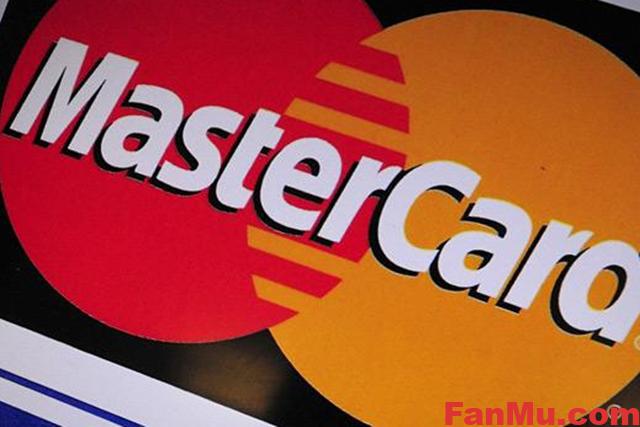
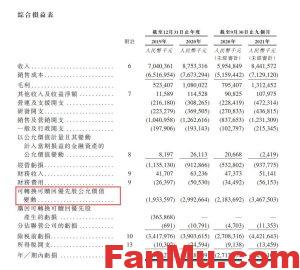

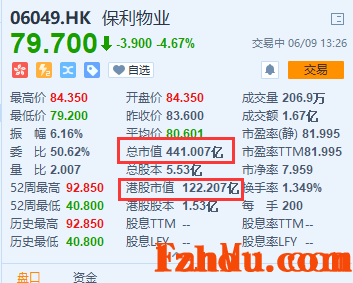
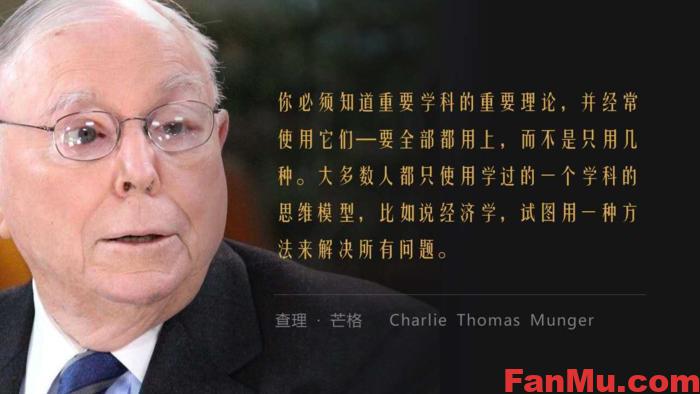



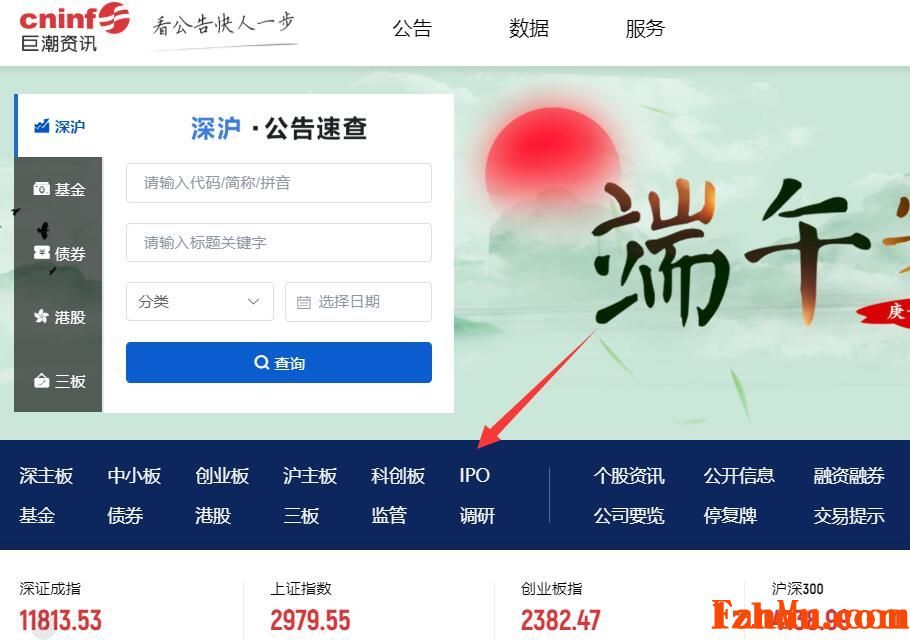

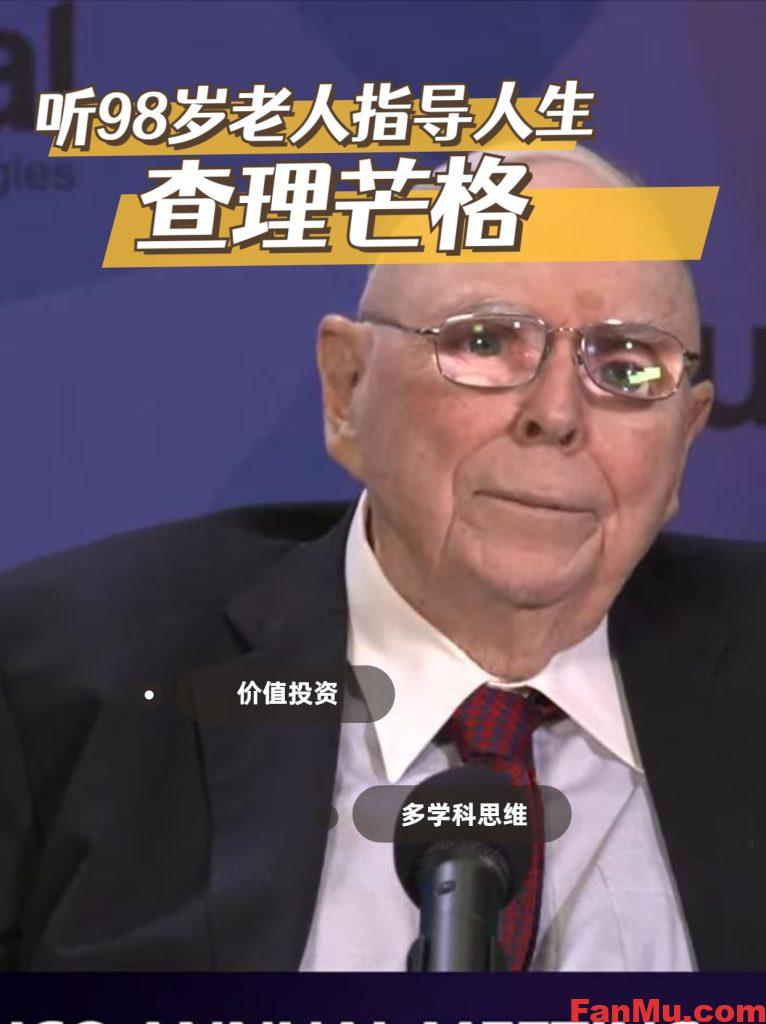
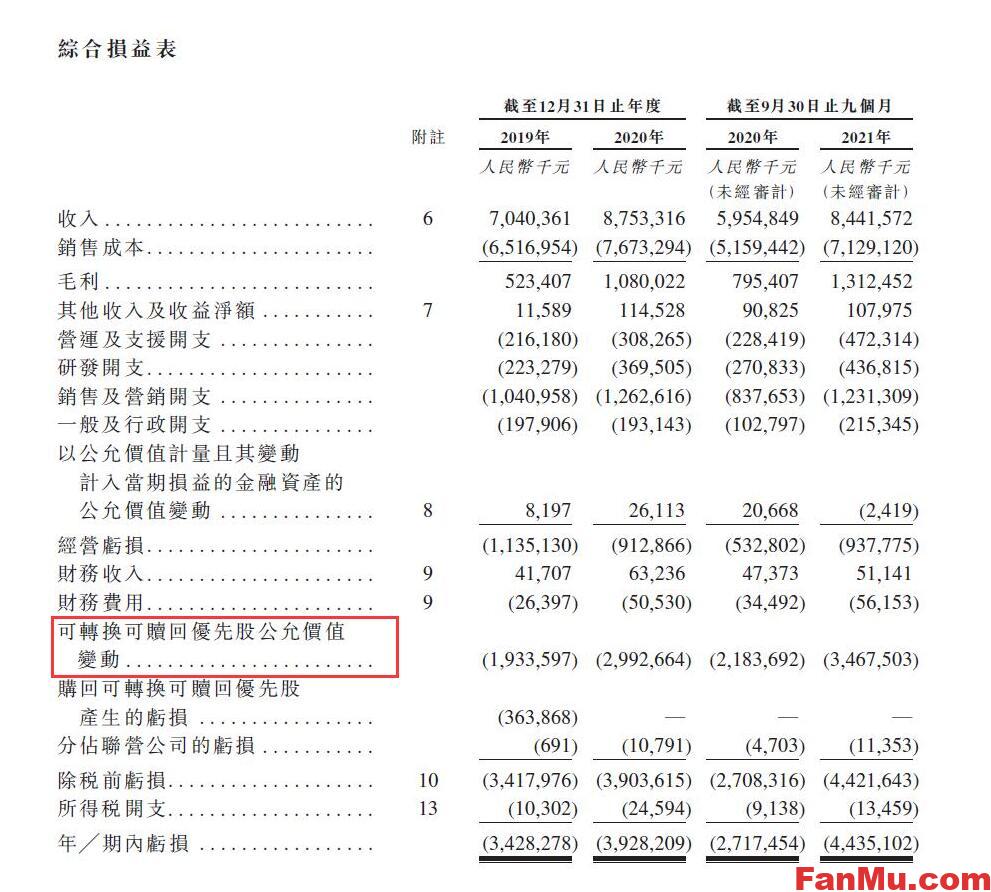


暂无评论内容